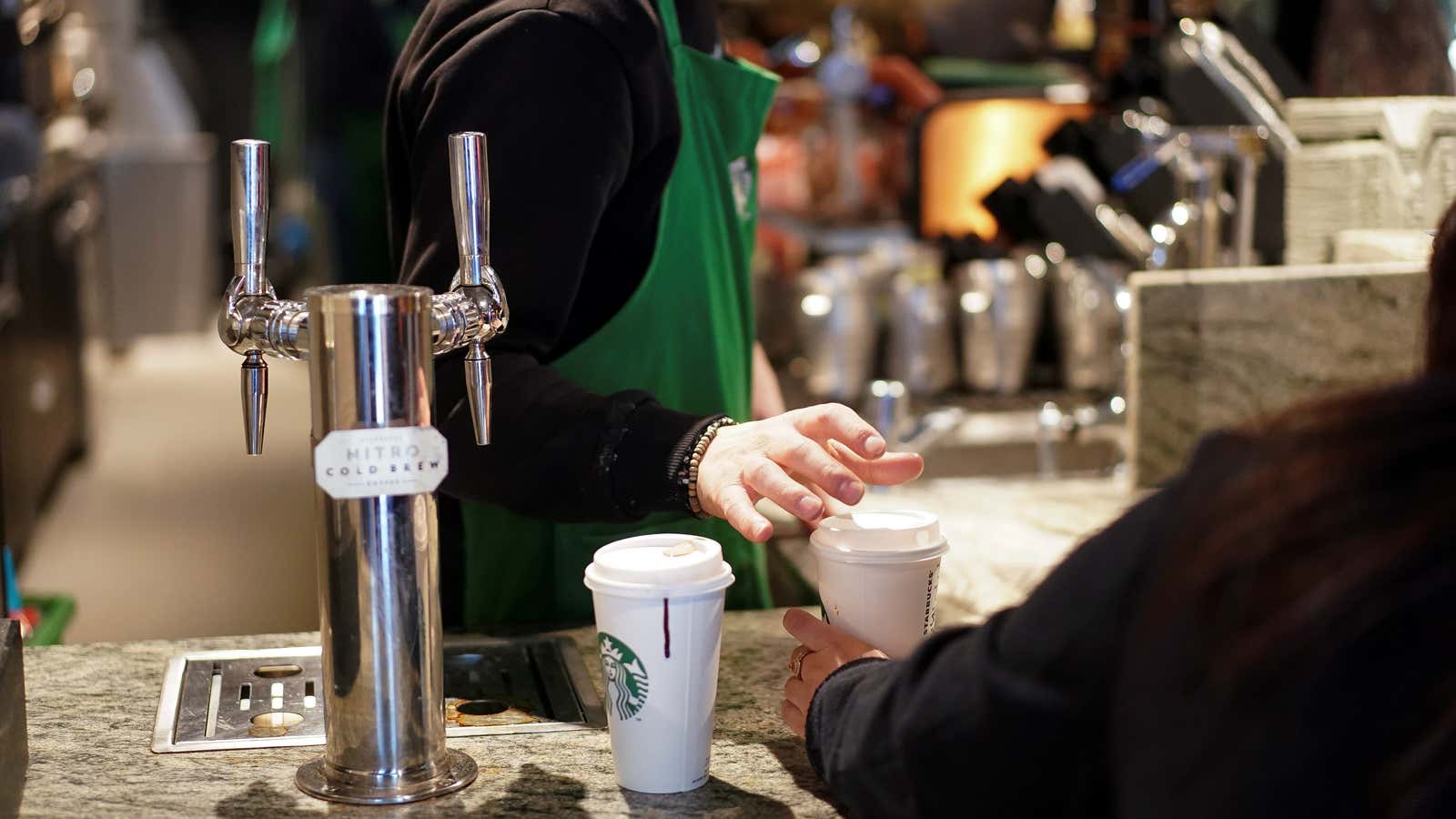I recently returned to the office for the first time in more than two months. Our receptionist Zubia commented on my sneakers (the Asics Tokyo Olympics 2020 Special Edition), and we briefly engaged in some banter on shoes, followed by the now almost obligatory topic of masks and Covid-19. Tai, the head cleaning-service worker on my floor, whom I had not seen in weeks, asked me how I was doing and we had a nice little chat. The barista at Starbucks smiled at me and confidently wrote “Bob” (my global Starbucks name) on my latte.
None of these conversations were in-depth or profound, but they were actual, in-person social interactions and they made me feel pretty good. I never thought I would miss this during lockdowns and quarantines but apparently I did. (I’m a classic introvert, so it’s very hard for me to start any type of conversations, though I’m usually happy to reciprocate when somebody starts talking to me.)
Meanwhile, with my colleagues—who I’ve been seeing almost every day in intense video calls—and with family, the connections have been closer than ever. My son, who’s at university and proud to be fairly self-sufficient, in the past would almost never call (unless money ran out), but in quarantine he called every day like clockwork. I started playing online games with my wife, kids, and friends (routinely coming in last or second-to-last, but hey…) and frequently spoke with once-close friends whom I had not talked to in years. And yes, I even called my mother more often! In short, deep connections became deeper, across the board.
So which is the key for emotional well-being? Deep connections with a smaller circle of people or many social interactions with random people? When the question is presented this way, of course, the answer is most likely to be…both.
Research by sociologist Gillian Sandstrom at Essex University suggests that although lots of people don’t think it’s worth the time to engage in these random social interactions, they are very likely to bring positive returns. She argues that we should look at the interaction with a barista not as an efficient transaction (order, pay, grab the coffee, and get out) but as an opportunity for a low-lift social interaction that improves social and emotional well-being.
Exchanging pleasantries with a friendly face may look like a superficial action, but the benefit is—arguably—of even greater value during times like these. When I stepped out of my apartment for the first time after serving a two-week stay-at-home notice, Mr. Ng, one of the condo caretakers, asked me the same questions he always has: “How’s your daughter?” and “When will your kids come visit?” This time, though, these fairly superficial questions took on added significance.
The benefits of “weak ties”
There is evidence that people are happier on days when they have more interactions with so-called “weak ties,” acquaintances with whom we have connections involving less intensity and intimacy than the ones we have with family, close friends, or close working relationships (our strong ties). The acquaintances may not seem to play a big role in your life, but your days somehow seem to be a bit emptier without them.
So what does this all mean? Well, the next time your Uber driver strikes up a conversation, maybe listen and engage in some random chitchat. It’s advice I might not have taken previously, myself, but I will now. Beyond the good feelings that come with those kinds of interactions, the idle banter could even lead to a more meaningful conversation, providing new perspective on things you might not have considered before (especially given that we tend to be exposed most often, whether physically to our strong ties or via social media algorithms that keep serving us the same content over and over again, to people who think like us).
So have a chat with the barista once in a while and, in any case, be kind to people, even when you consider them weak ties or random interactions. Chances are you’ll be happier, and they’ll probably be happier too, because you’ve shown them that they matter and because they get the same weak-tie benefits that you do.
